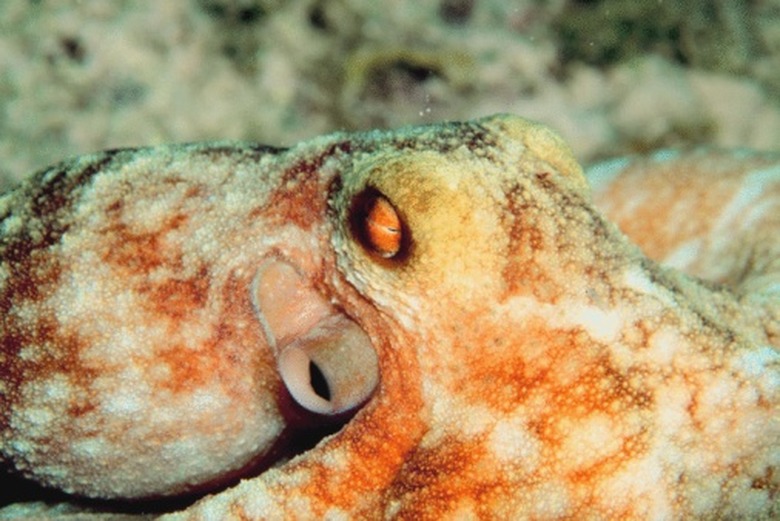All animals are categorized by a seven-part classification system. What type of animal an octopus is depends on the taxonomic level being discussed. The broadest level is kingdom, followed by phylum, class, order, family, genus and species. All octopuses belong to the order Octopoda. Octopoda is part of the class Cephalopoda, meaning that octopuses are cephalopods. Cephalopoda is part of the phylum Mollusca, meaning that octopuses are also mollusks.
Class: Cephalopoda
Octopuses are cephalopods. Cephalopods are characterized by multiple arms or tentacles, large heads and symmetrical bodies. All cephalopods live in saltwater. They are split into two subclasses. Octopuses, along with squid and cuttlefish, belong to Coleoidea, the soft-bodied cephalopod. Cephalopods belonging to the other subclass, Nautiloidea, have shells.
Phylum: Mollusca
Octopuses are mollusks, a classification which includes gastropods like snails and slugs, bivalves like clams and oysters, and several other distinct classes. Mollusks compose more than 23 percent of classified marine organisms, more than any other phylum, and are also found on land and in freshwater. Many mollusks have external shells, but others, including octopuses, do not.
Invertebrate
Even more broadly, octopuses are invertebrates. This classification includes all animal species except those belonging to the subphylum Vertebrata, which includes fish, mammals, reptiles, birds and amphibians. Invertebrates are characterized by their lack of a backbone.
Protostomes
Octopuses are protostomes. This classification is based largely on embryonic development. All bilaterally symmetrical animals are divided into two groups: protostomes and deuterostomes. Early in development, a dent or depression called a blastopore forms in the embryo. In deuterostomes, which includes all vertebrates, this dent eventually forms into the anus. In protostomes like octopuses, the blastopore forms into the mouth.

